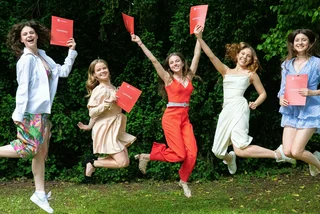Written by Sylvia May
of EISP
Those of you who remember the song
‘Melting Pot´ that was so popular in the 70´s know that the lyrics of that particular number were aimed at anti-apartheid. It is my view however, that the melting pot of international education will be our lyric for the future. It is interesting how, over the past 20 years, the educational perspective has gone through it´s national revivals, the establishment of curriculum programmes such as the ‘National Curriculum for England and Wales´ and similar programmes in New Zealand, the USA and countless other nations show a response to the need for a national standard. But this is changing much faster than developments in education during the last century.
The 21st century has produced a world where you can find the same shops, cars, restaurants, banks, Christmas decorations and businesses in any major city you visit – in 50 years the world of business has morphed the ‘national´ boundaries of our everyday lives.
Perhaps this also mirrors the 21st century view of what education should be. You may have read the latest educational buzz words – ‘global citizenship´, ‘intercultural understanding´, ‘cross-cultural perspectives´. Essentially we have to ‘look to our neighbours´. But more importantly we have to know how to live with and among them.
This is why international schools must look beyond national boundaries if they are to offer their diverse clients the education they deserve. We really need to give our children the concepts, skills and tools for learning which will go beyond acquiring knowledge and will teach them to think, investigate and problem solve.
For example, which is more important? To teach children that the capital city of Hungary is Budapest, or to use an atlas, encyclopaedia or the internet to find capital cities for themselves?
Education in its content reflects the society it serves and is a changing process which continues through to adulthood. But the tenets of learning remain constant. It is critical that we give children the opportunity to use their skills and understanding to diversify their learning to match their cultural and intellectual needs.
This Article was written by Sylvia May
From English International School of Prague
Visit http://www.eisp.cz












 Reading time: 2 minutes
Reading time: 2 minutes 



















